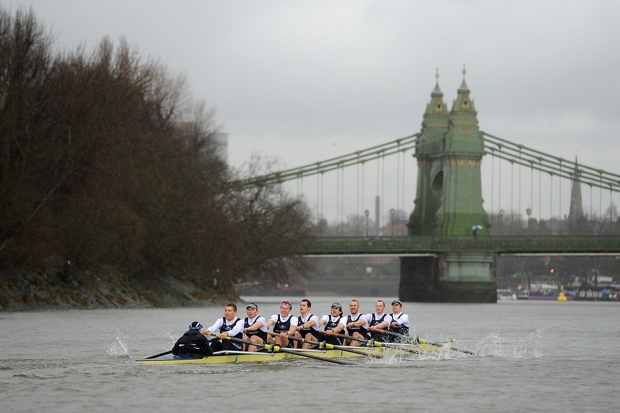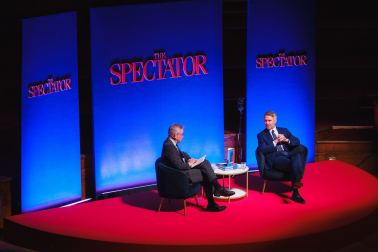It’s Boat Race time again and as soon as the BBC starts its broadcast on Sunday there will be those who invade Twitter and such places, having a moan faster than the Bullingdon Club can trash an Oxford curry house. Why’s it always the same two teams in the final? The more strident will demand why licence fee payers’ money is being spent on a private race that’s of no interest to anyone who wasn’t educated under one set of dreaming spires or the other.
It’s amazing how many people went to Oxbridge, in that case. Why do more than seven million viewers tune in each year, and why has the BBC just renewed its contract for another six years? Why are the riverbanks rammed solid with spectators for four miles? Why is this the best weekend to be a publican in Putney or Mortlake?
People watch because the Boat Race is gripping, gladiatorial sport. An 18-minute battle — three times the Olympic rowing distance — in which two crews race side by side (and are usually given a little licence to clash oars), while struggling to handle the bends of the river and choppy waves that spill icy water into their laps.
They have spent six months training for this one race and you can see how much it means by the desolation on the faces of the losers and the exhaustion on those of the winners. Few sportsmen so visibly leave it all out there on the field.
Oxford should be strong favourites. Their president, the Canadian Malcolm Howard, won gold at the Beijing Olympics and silver at London 2012 and they have two other Olympic medal-winners as well as a couple more of international quality.









Comments
Join the debate for just £1 a month
Be part of the conversation with other Spectator readers by getting your first three months for £3.
UNLOCK ACCESS Just £1 a monthAlready a subscriber? Log in